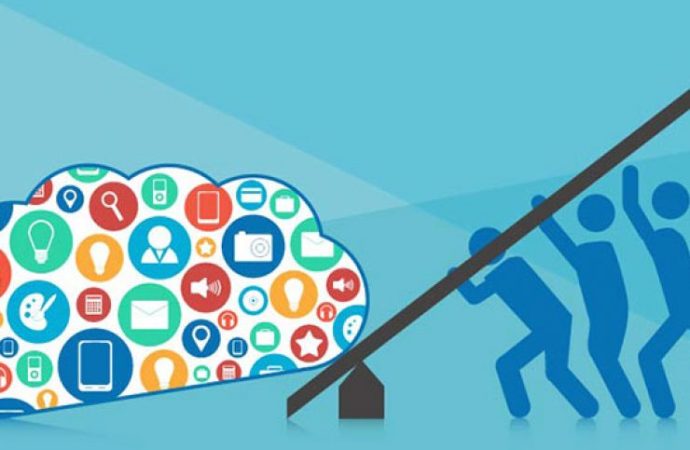About the Author: Hey there! I’m Alex, a psychology student with a keen eye on how technology shapes our lives. In this age of constant connection, it’s easy to wonder if our phones are doing us more harm than good. Let’s unpack the link between FOMO (fear of missing out) and mental health, and explore
About the Author:
Hey there! I’m Alex, a psychology student with a keen eye on how technology shapes our lives. In this age of constant connection, it’s easy to wonder if our phones are doing us more harm than good. Let’s unpack the link between FOMO (fear of missing out) and mental health, and explore some strategies to take back control of our phone use.
Headings:
- The FOMO Frenzy: Why Phones Trigger Fear of Missing Out
- Social Media: Highlight Reels vs. Reality
- From Likes to Low Mood: How FOMO Affects Mental Health
- Breaking Free: Strategies for a Healthier Phone Use
- The Phone Detox Challenge (This heading will include a table)
- You Got This! Tips for Long-Term Success
- Conclusion: Owning Your Phone, Not Letting It Own You
The FOMO Frenzy: Why Phones Trigger Fear of Missing Out
Ever scrolled through social media and felt a pang of jealousy? You’re not alone. The constant stream of perfectly curated vacations, parties, and achievements can trigger a powerful emotion called FOMO – fear of missing out. Dr. Catherine Steiner-Adair, a Harvard University psychiatrist who specializes in teens, explains that FOMO is particularly strong for young people because they’re at a stage of social development where acceptance and belonging are crucial [1]. Social media platforms can become breeding grounds for FOMO, constantly bombarding us with glimpses of what others are experiencing, often creating an unrealistic portrayal of happiness and success.
Social Media: Highlight Reels vs. Reality
Imagine your social media feed as a highlight reel. People tend to share the best moments, the filtered photos, and the exciting adventures. But what about the uneventful days, the struggles, and the moments of self-doubt? Those rarely make the cut. This constant comparison to a highlight reel can distort our perception of reality. We might start believing everyone else’s life is fantastic, while ours pales in comparison. This fuels feelings of inadequacy and social isolation, worsening FOMO and potentially impacting our mental health.
A study published in the journal “Computers in Human Behavior” found a correlation between increased Facebook use and symptoms of depression, particularly for those who compared themselves more often to others on the platform [2]. It’s important to remember that social media is just a snapshot, not a reflection of someone’s entire life.

Image by: https://www.gottman.com/blog/are-you-lonesome-tonight-loneliness-in-marriage/
From Likes to Low Mood: How FOMO Affects Mental Health
The negative effects of FOMO go beyond a fleeting feeling of jealousy. Here’s how it can impact your mental well-being:
- Anxiety and Depression: Constantly comparing yourself to others online can lead to feelings of anxiety and inadequacy. This can spiral into low self-esteem and even depression.
- Sleep Disruption: The blue light emitted by phone screens disrupts sleep patterns. Late-night scrolling can leave you feeling tired and foggy the next day, further impacting your mood and focus.
- Decreased Face-to-Face Interaction: Spending excessive time glued to your phone can hinder your ability to connect with people in real life. This can lead to feelings of loneliness and isolation, further worsening FOMO.
Breaking Free: Strategies for a Healthier Phone Use
If you find yourself constantly battling FOMO and feeling overwhelmed by your phone use, here are some strategies to help you regain control:
- Be Mindful of Your Habits: The first step is to become aware of how you use your phone. Track your daily screen time and identify triggers for excessive phone use.
- Challenge the Highlight Reel: Remember, social media is a curated version of reality. Don’t compare your behind-the-scenes moments to someone else’s highlight reel.
- Curate Your Feed: Unfollow accounts that make you feel bad about yourself or trigger FOMO. Instead, follow people who inspire you and promote positive content.
- Embrace Boredom: In today’s fast-paced world, boredom can feel like a bad thing. But allowing yourself some unplugged time can be a powerful tool. Use this time to reconnect with yourself, explore hobbies, or spend time with loved ones.
The Phone Detox Challenge (5 Days to a Healthier You!)
Ready to take a step back and re-evaluate your phone use? Try this 5-day phone detox challenge!
| Day | Challenge | Benefit |
|---|---|---|
| Day 1 | Set Time Limits | Gaining awareness and control over your phone use. |
| Day 2 | Silent Nights | Promoting healthy sleep patterns for better mood and focus. |
| Day 3 | Notification Off | Reduce distractions and improve concentration. |
| Day 4 | Phone-Free Zones | Enhance presence in the moment and deepen connections. |
| Day 5 | Embrace Boredom | Spark creativity, improve problem-solving skills, and boost self-awareness. |
You Got This! Tips for Long-Term Success
The phone detox challenge is a great starting point, but for lasting change, consider these additional tips:
- Find Alternatives: Identify activities you enjoy that don’t involve your phone. This could be anything from playing music to going for a walk with a friend.
- Reward Yourself: Celebrate your progress! Completing the phone detox challenge or sticking to your screen time limits deserves a reward.
- Be Patient: Changing habits takes time. Don’t get discouraged if you slip up. Just get back on track and keep moving forward.
Conclusion: Owning Your Phone, Not Letting It Own You
Technology is a powerful tool, but it’s important to use it consciously. By taking control of your phone use and prioritizing your mental well-being, you can break free from the cycle of FOMO and create a healthier relationship with technology. Remember, you are not defined by the number of likes you get or the perfectly curated image you project online. Focus on what truly matters – real-life connections, personal growth, and living in the present moment. Take charge of your phone use, and create a digital life that empowers you, not the other way around.
















